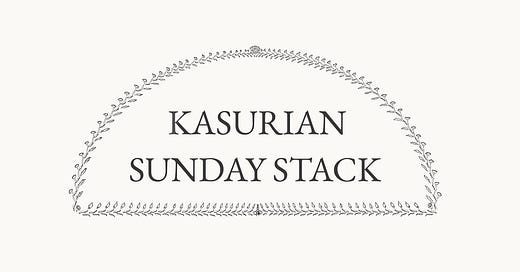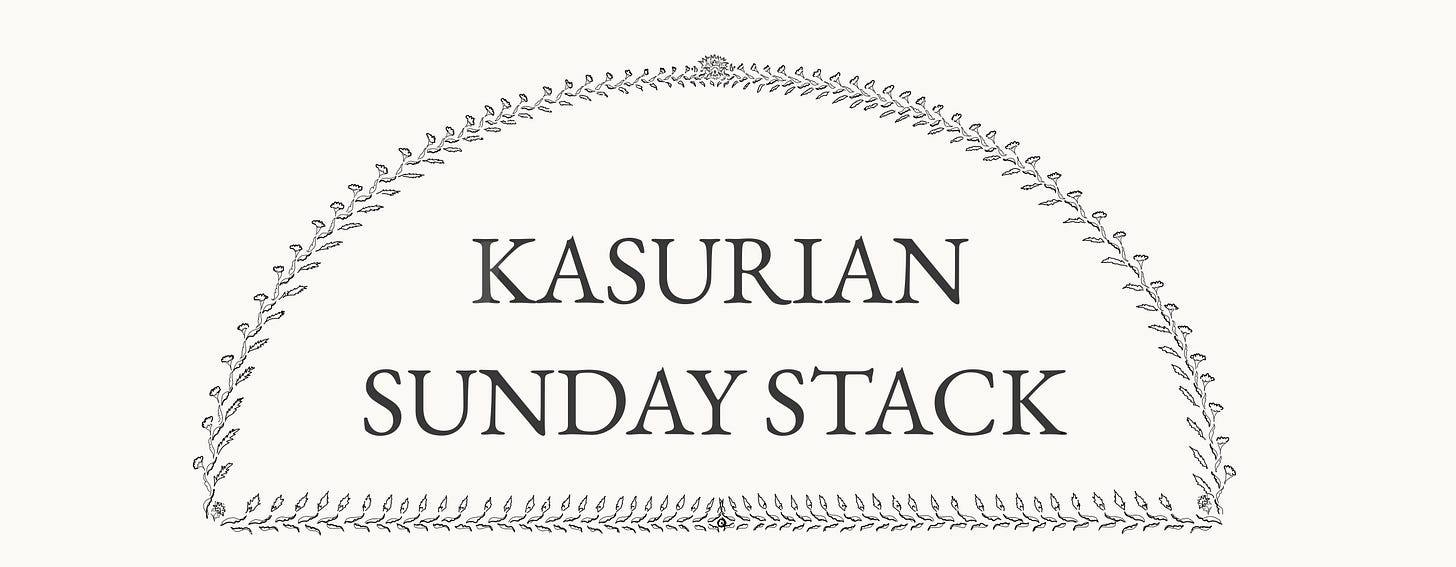Welcome to all new subscribers who have joined Kasurian this month. Your response to our essays has been overwhelming and encouraging, and we look forward to publishing many more thought-provoking essays on under-explored topics.
If you have pledged a paid subscription to Kasurian, please know that we have not enabled paid subscriptions. A pledge means payment is taken once paid subscriptions are enabled, which will only be done after the conclusion of our spring issue, as we aim to first show the quality and scope of our publishing and build a valuable membership model for our growing readership. We will announce more on the Kasurian membership model after next Sunday’s essay, which concludes our spring issue.
The upcoming essay, In Abraham’s Shadow, is in honour of the upcoming Eid al-Adha (Feast of Sacrifice) and will dive into mankind’s deep history, the moral shift prompted by Abraham’s sacrifice of the ram, and what the world ahead of us today looks like as Abrahamic morality’s dominance approaches its twilight. Until then, we recommend reading some of our earliest essays from March in case you missed them:
In our inaugural essay, Kasurian: A Magazine for the 21st Century, Ahmed Askary explains the purpose of Kasurian and what you can expect from this magazine.
In The Lost Art of Research as Leisure, Mariam Mahmoud explores the turn of research from an amateur occupation into the expert’s preserve–and what we can do to revive ‘amateur research’ in our lives.
In How the Mongols Revived Islamic Civilisation, Yana Zuray makes the case that the Mongol invasions did not trigger Islam’s “long decline”, but that Islamic civilisation mustered a response that would take it to new heights in the coming centuries. This essay is our first in an ongoing series of essays that will critically assess the long-held narrative of Islam’s Long Decline, instead arguing for a Longue Durée in which Islamic civilisation did not peak in the Abbasid Golden Age, but has gone through cycles of rise and decline, with every rise greater than the last—until the industrial era.
In The Conspiracy to Save the Ottoman Caliphate in India, Imran Mulla uncovers the last-ditch effort by the last Ottoman Caliph to unite two of Islamic civilisation’s last great dynasties, and transfer the seat of the Caliphate to Hyderabad in the heart of India. This nearly forgotten effort was a fork in the road and forces us to contend with our history not as a predetermined series of events, but as an ongoing negotiation of possibilities informed by the choices people make every day.
Below are some external reading recommendations for supplementing your Kasurian diet.
The Islamic Secular
With a provocative title that has probably attracted more attention than the book’s contents, Professor Sherman A. Jackson makes an intriguing argument for an ‘indigenous secularity’ within the Islamic tradition. Islamic jurisprudence is not totalising but has self-imposed limits, outside of which Muslims have engaged in reason to produce answers to the needs and problems of society. If you are short on time, you really just need read the introduction, chapter 3, and conclusion to get the gist of Jackson’s argument. Kasurian is publishing a review of The Islamic Secular by editor-in-chief Ahmed Askary for our summer issue, so we recommend developing some familiarity with this excellent book.
How I Learned to Stop Worrying and Love the Mongols
In response to Yana Zuray’s essay on Kasurian, How the Mongols Revived Islamic Civilisation, Zach Winters continues the conversation by exploring alternative theories of civilisation from intellectuals like Oswald Spengler and Marshall Hodgson.
The Editorial Battles That Made The New Yorker (The New Yorker)
In this long read, The New Yorker shines a light on the unsung efforts of editors in enforcing the rigorous standards that shaped the magazine’s exacting reputation, from comma placement to narrative structure to fact-checking every date, fact, and claim. The work of an editor is a sort of ‘epistemology-in-action’, verifying and helping to create knowledge in real time. The best magazines function as bureaucracies of knowledge production.
The effort to rebuild Syria: Life after the fall of the Assad regime (Monocle)
This essay from Monocle looks at the challenge of reconstruction in post-Assad Syria. The new government has to balance the country’s immense reconstruction needs with developing the domestic economy, as over-reliance on imports could help Syria in the short run while hampering its redevelopment in the long run. However, in Damascus, people are optimistic despite the economic uncertainty. They now have the freedom to rebuild Syria in ways that are more beautiful, green, and true to the Syrian people’s customs and values.
All art has been custom-drawn for Kasurian by Ahmet Faruk Yilmaz. You can find him on Instagram and X.
You can follow Kasurian on Substack Notes, Instagram, and Twitter/X for the latest updates.




